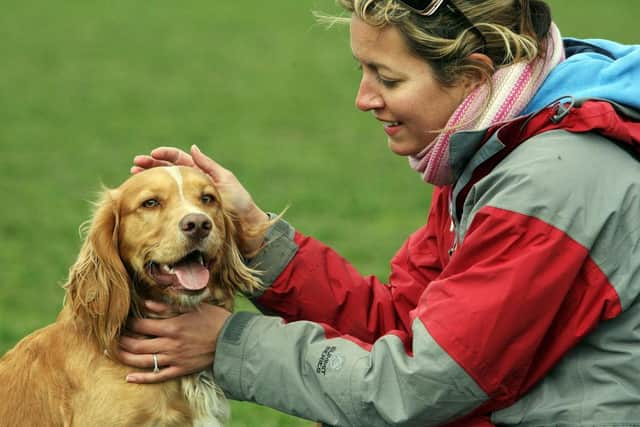Councillor faces backlash over 'is your pet bad for the planet' interview on Radio Solent- but how much do pets contribute to global warming?
This article contains affiliate links. We may earn a small commission on items purchased through this article, but that does not affect our editorial judgement.
and live on Freeview channel 276
Mark Howell was a guest on Radio Solent this morning and voiced his concern over the carbon footprint of pets.
The councillor was brought onto Alun Newman's radio show after he shared his views at an overview and scrutiny council meeting.
Advertisement
Hide AdAdvertisement
Hide Ad

Here is everything you need to know about Mr Howell's comments and if animals really are bad for the environment:
What did Mr Howell say about pets?
At the Bournemouth, Christchurch and Poole Council meeting on environmental issues held on January 5, he stated that the impact of pets meeting emissions targets was 'a big elephant in the room.'
The councillor asked if a target of being carbon neutral could be met 'without addressing the issue of the carbon footprint and methane of pets’.
He went on to provide claims of the environmental impact of pets.
Advertisement
Hide AdAdvertisement
Hide AdHe said: ‘You don't have to have an enormous dog, you can have a smaller dog.
'A cat is more efficient in some respect, but cats cause enormous biodiversity problems.’
Since he made his initial remarks, Mr Howell has faced backlash on Twitter.
One Twitter user @coombs680 said: 'Get rid of councillors driving around in flash cars instead that should lower the carbon footprint' whilst another Twitter user @stuart_weeks said: 'Thousands more people would choose dogs over these councillors.'
Advertisement
Hide AdAdvertisement
Hide AdHe has since defended his statements via a Facebook video on the Poole People page and on the Radio Solent broadcast.
He said in the Facebook video: ‘I'm not saying we should ban dogs, or exterminate dogs, or cats,'
'What I'm saying is that people need to think carefully when their pets pass away whether they need to replace them; whether they need to scale down the size of the pets; perhaps, whether they need to share pets.’
Mr Howell shared on the Radio Solent show that: 'I never suggested that pets should be banned. What I did was point out the fact that they have quite a large carbon footprint and they should be included in any assessment of carbon emissions that is produced by the council.’
Are pets bad for the environment?
In a way, pets actually can be bad for the environment.
Advertisement
Hide AdAdvertisement
Hide AdThe biggest environmental impact of having pets comes from producing meat-based pet food which uses land, an energy source and water.
This process is a significant source of greenhouse gas emissions.
Pets need toys, grooming products and a number of accessories which also come at a cost to the environment.
Larger pets can have the most impact on the environment whereas plant and grain-eating animals such as rabbits will have a smaller impact.
Advertisement
Hide AdAdvertisement
Hide AdThe demand for pets has risen since 2020 when the coronavirus pandemic saw more people looking for a furry friend.
Pet owners in the UK are now in the millions, which means a lot of faeces and methane is going into the environment.
According to carbon footprint writer Mike Berners-Lee, these are the carbon footprint of pets:
Goldfish – 25kg of CO2e1 per year
Average-size cat – 310kg of CO2e per year
Average-size dog – 770 kg of CO2e per year
Large dog – 2,500kg of CO2e per year
To help reduce your pets carbon footprint, owners are urged to buy only the food they need, buy biodegradable poop bags and have pets spayed or neutered to reduce the chance of an unwanted litter.
Advertisement
Hide AdAdvertisement
Hide AdWhilst pets may carry their own carbon footprint, there are also many perks of having a furry companion such as improving mental wellbeing and increased opportunities to exercise.

